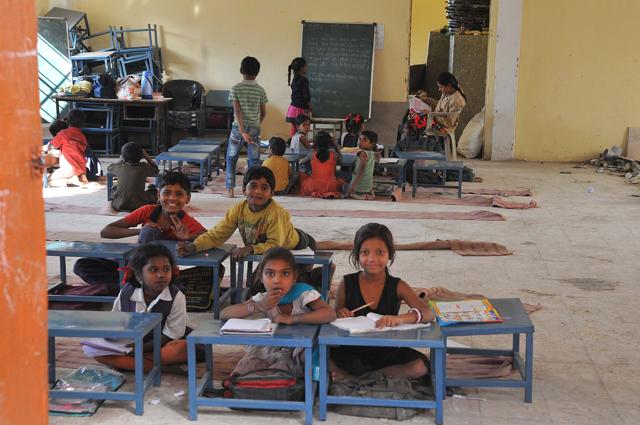Minor reforms in education will not work, need major overhaul, say experts
For many years now, India has been witnessing incremental changes in its academic policies. However, experts believe the country’s need of the hour isn’t minor reforms, but a major overhaul as far as its education system is concerned.
For many years now, India has been witnessing incremental changes in its academic policies. However, experts believe the country’s need of the hour isn’t minor reforms, but a major overhaul as far as its education system is concerned.

According to educationists, teachers — who form the very backbone of the system — have not received a lot of attention. “Upscaling and updating teacher empowerment, besides capacity building, is the only way forward. Also, teachers must be given the dignity and recognition they deserve in society. Some people still view it as half a day’s work; we need to make teaching as glamorous as an MBA job. We need to dignify the teacher,” said Lata Vaidyanathan, former principal of Modern School, Barakhamba Road.
Vaidyanathan further stated that the high cut-offs in select colleges place a huge burden on students, even good ones. This inadvertently encourages rote-learning, resulting in students not assimilating anything substantial by way of education.
“Even schools that think differently in terms of teaching put reforms on the backburner when it comes to Class 11 and 12, and say: ‘You want the marks and we want the marks, so go get it!’ The race for marks is such that we have lost an understanding of knowledge itself,” she said.
Vaidyanathan suggested that an examination on the lines of the US-based SAT test be introduced to bridge grading discrepancies between various state boards.
Teacher training is yet another area that has turned into a mere formality, with educators attending the sessions but learning very little from them. “Our teacher training programmes need a major overhaul. We continue to use archaic tools of training, which need to be changed. We should also engage the students, and not encourage rote learning by focusing merely on numbers. Besides this, the dismal teacher-student ratio needs to be addressed – a single teacher can’t hold the attention of a very big class,” said Dinesh Singh, former vice-chancellor of Delhi University.
Other experts believe stern action should be taken against administrators if they are caught promoting unfair practices among students. “If someone is caught cheating, throw them (invigilators) out. I think punitive action should be taken against adults, not children. In open schools, I couldn’t do much even though there were several cases of mass copying. Punitive action should be taken against teachers who play truant or don’t carry out their tasks,” said Deepak Pental, former vice-chancellor of Delhi University.
Pental said though he had asked the government to rid transfer policies of their political baggage, the suggestion was not implemented. “I once suggested to the government that it transfer teachers on the basis of lottery, not patronage. There is a huge political push in transferring teachers, and it de-motivates others,” he said.
Professor Anita Rampal, former dean of the faculty of education, Delhi University, believes examinations are the weakest point of India’s education system today. “I feel that the Right To Education (RTE) Act is very progressive in the way it has mandated that there should be no competitive board exams, and the annual exams be conducted with a focus on a more authentic assessment of how students are learning and performing through the year. But I think the system did not actually follow it. The examinations and assessments being conducted are actually quite superficial,” she said.
Rampal further pointed out that question papers merely elicit meaningless information, based on the memorisation of information. “I would say such exams actually violate the child’s rights, and it is the system that fails – not the child.”
The government should also prioritise putting in place a robust assessment system, she added.











